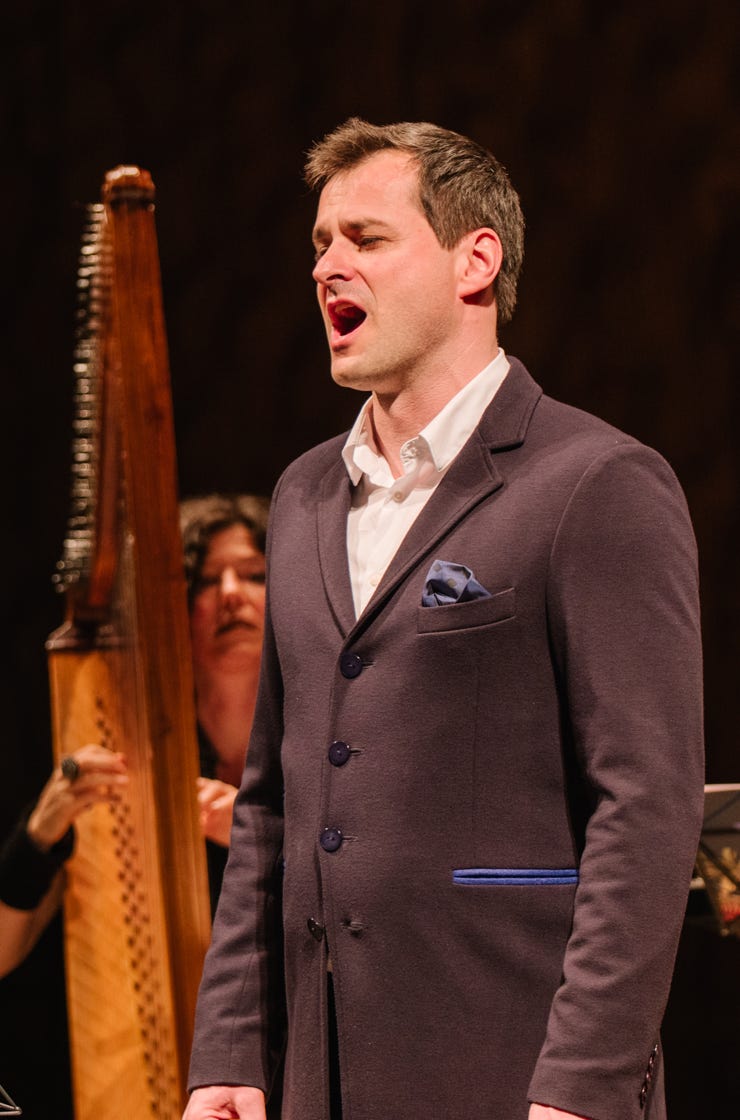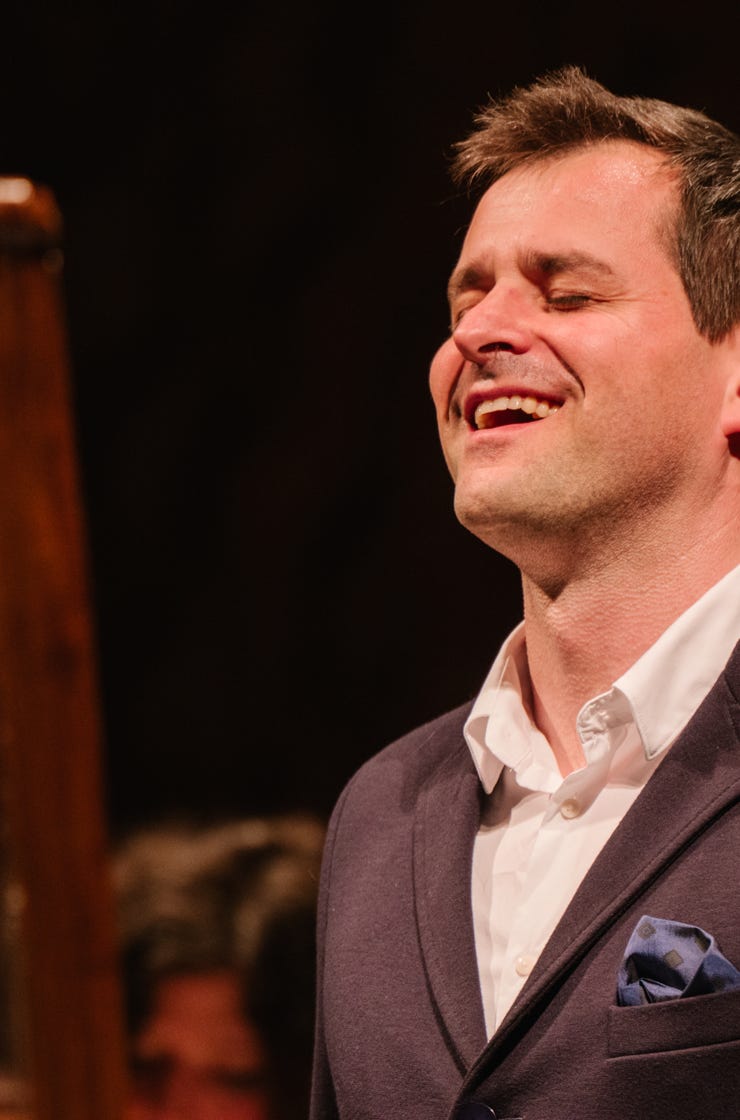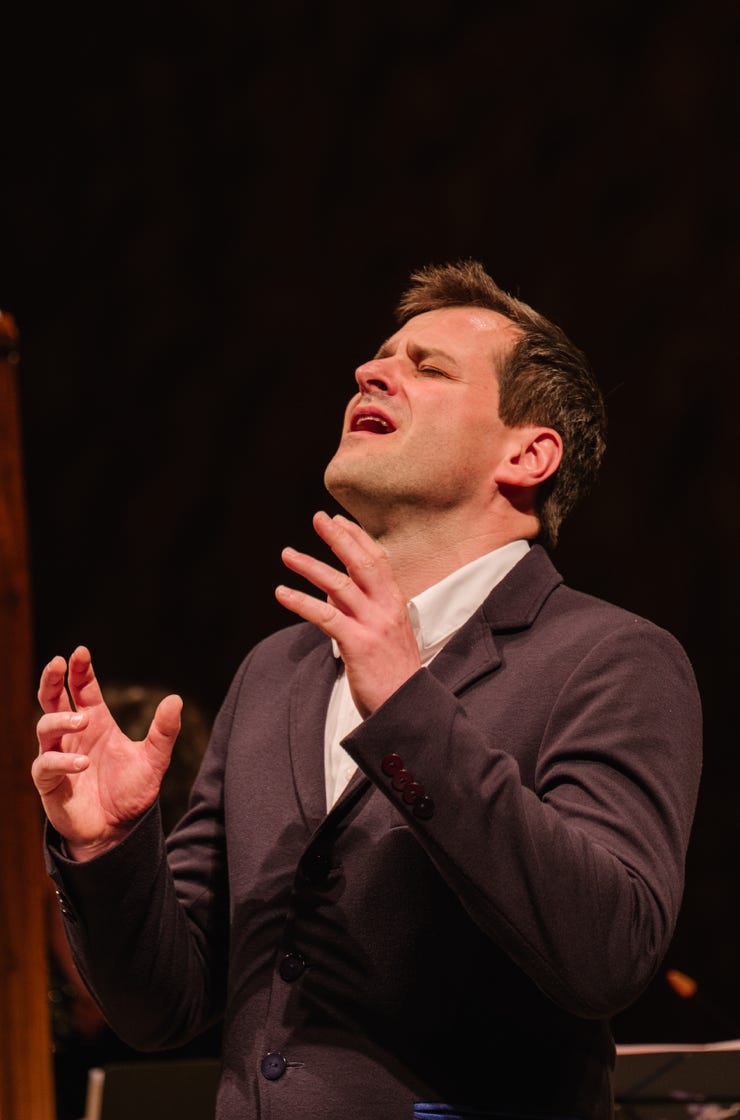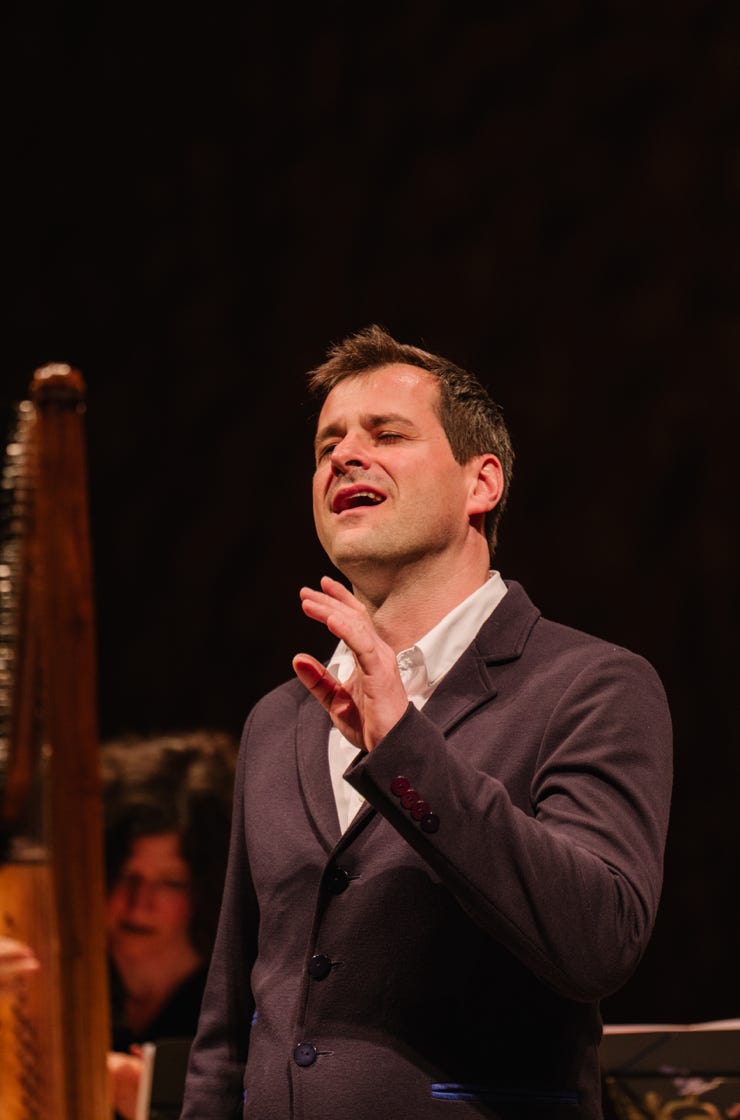Click here to see all artists
graphicdesign:usa 2020 american web design award
Click here to see all artists
graphicdesign:usa 2020 american web design award
“il gondoliere Veneziano”




“il gondoliere Veneziano”
Review of the performance
— Hamburger Abendblatt, April 20, 2019
Gondolier in the Elbphilharmonie
“….all of which makes you want more.”
A small boat with upturned ends glides through narrow water streets, passing bridges and houses with crumbling facades. At the stern stands a man in a striped shirt and a straw hat with a colorful ribbon, who romantically steers the boat with a long oar and accompanying song.Almost no other picture, at least among non-Venetians, is so post-card ready as a symbol of Venice as the steering gondolier in his gondola. It was natural, then, that this legendary figure would be at the center of the opening of the Hamburg Venice Festival.
As musical gondolier for its opening, the Elbphilharmonie engaged baritone Holger Falk, who takes the audience on a 90 minute journey. It began with that most Venetian of all sounds—the murmuring, flowing, and gurgling of water. The sound-effect artist duo Merzouga, which has won numerous prizes, recorded the everyday sounds of the lagoon city, which provided the acoustical backdrop for the concert.
Babbling water, the screeching of seagulls, church bells ringing, and in addition the squeaking of doors, the splashing of oars, and vaparetto station announcements in multiple languages (next stop: Rialto!) emanate from the boxes on the stage during pauses in the music, and bring a whiff of the Adriatic to the Elbe. Against this background Holger Falk, along with ensemble Nuovo Aspetto, casts a net of short songs, arias and instrumental pieces that catch the audience and drag them into the boat as listening passengers. Falk chose some of the most beautiful canzoni from the repertoire of gondolieri. In the heavenly melodies of Domenico Cerutti, Pietro Auletta, and anonymous composers he sings of the nighttime by moonlight, the festive mood of the poor man and, of course, that strange game called love in all its facets from teasing, to magical eroticism, to the betrayal by the false little mouth of Ninetta.
The appeal of the songs is high. Venice seems to come out here as the birthplace of the hit song. Holger Falk, equally in demand as an opera singer and Lied interpreter, finds exactly the right tone for this music with a light sound that unites simplicity and sweetness in his almost tenor timbre. He is particularly magical in the slightly trashy “La biondina in gondoletta” about a gondola trip with a pretty blonde whose bosoms are unveiled by a light breeze.
Like a vocal chameleon, Falk changes color with the surroundings of the music. He venomously mocks the pompous rich, nasally imitating the vulgar language of the street (“Per mi aver Catina“), in which the audience shyly sings along the chorus. In the process the baritone shows from time to time his love for performing, also in the almost “for adults only” “un’an guileta fresca” whose narrator offers his “fresh eel”— ha,ha!—to a young lady named Nina to be handled with special care. Here Falk portrays with large gestures the testosterone overload and easy arousal of the young man which give him and the audience much enjoyment.
Musically, the program sets its points primarily by clever arrangements. The nine-member group Nuovo Aspetto brings together a colorful mix of historical instruments, from the baroque guitar to the traverso flute and harp to the Salterio, a baroque dulcimer. Through a clever distribution of the soli, the ensemble gives each song its own color, and enriches the vocal selections with short pieces of the Venetian composer Antonio Vivaldi.
Meanwhile, the enchanting computer musician Eva Pöpplein—the visible part of the duo Merzouga—on the left of the ensemble on stage at a black-covered table, moves her head gently in the rhythm of the pieces, and via live electronics does not only send the Venetian waters but also some loops of the singer’s vocal lines into the hall. This is how contemporary sound technology and old instruments, noise and music, everyday life and art come together for an entertaining trip with the Gondolier Veneziano, all of which makes you want more.
— Hamburger Abendblatt
“il gondoliere Veneziano”
Reviews of the CD recording
“It is simply fabulous what Falk and his colleagues do with the canzoni, left mainly from the 18th century. The immense ability to move people, the creative intelligence, musical intuition, and technical excellence of the soloist have been known for a long time - one only has to think of his formidable Eisler and Satie recitals. But there is also a gifted story-teller in him who finds all kinds of colors in the simple folk tunes of the barcarolles rising from the gondolas. Love and longing, pride and melancholy, a visit to the opera, a story of an eel in the kitchen, the serene sky, the loud silence of the night – as the knowledgeable, sauntering seeker for meaning, he comes up with the right expression for every mood, for every matter of the heart and, in addition, he sweetens it with magically simple discoveries by the Baroque violinist Giuseppe Tartini, the Popora student Pietro Auletta as well as “Biondina in gondoletta” by Johann Simon Mayr.”
— Opernwelt
“So one must let the “Gondoliere Veneziano” into the house - he is from Regensburg, is named Holger Falk, and is a baritone. This CD is one of the most beautiful homages to Venice, because Falk has brought the electronic music duo Merzouga into the gondola. The two recorded on location the noise of water splashing, of the vaparetto, of tourists scurrying, Falk singing, and seagulls screeching, and put them together into acoustical bits strewn between the songs that Holger Falk sings with freshness, high spirits, rounded tone, and lasciviously.”
— Süddeutsche Zeitung
“Falk is in gorgeous voice, singing with a relaxed informality that’s irresistible, and the production values serve him so well. “La biondina in gondoletta” is typical, the voice initially accompanied just by the splash of water before the instruments enter. These songs are so, so catchy. There’s a brilliant innuendo-laden number about an eel and a delicious nocturnal boat ride. Canaletto’s presence on the album cover might suggest that this disc is a weighty, solemn affair, but it’s an utter joy….Let’s face it – visiting Venice, or even Italy, won’t be possible for quite some time. Falk’s album might be as close as we get. Already one of my discs of the year.”
— The Arts Desk
“In the background there are the sounds of the lagoon, the screeching of gulls, the sounds of the bells from the belltower of San Marco. No, Holger Falk’s ”Il Gondoliere Veneziano” is not a typical Lied or Aria CD. What the baritone put together with the early music specialists of Nuovo Aspetto and the electronic handiwork of Merzouga is a small total work of art - an excursion through the city of lagoons- acoustical overflow of charm included.”
— Münchner Merkur
“It is a fabulous idea to combine gondolier songs and Venetian classics with sound recordings from the city. The results make one pay attention and listen. It is called “Il Gondoliere Veneziano” and is now a CD, part of the WDR series. Biting, clown-like, or proud is how Holger Falk presents these traditional songs sung by boatmen, that Goethe already heard on his travels.”
— Kölner Rundschau
“It is in the spirit of Frédéric Nietzsche and his admiration for Venice - true oasis of happiness – that we assure all those who love La Sérénissima and dream of going there or returning to it: the authenticity and fascination for the place are guaranteed here…. The atmosphere of this record is that of a living tableau: in addition to sung arias and instrumental interludes, we discover with wonder, as if we were on an enchanted walk, electroacoustic additions captured live by the team Merzouga which has crisscrossed with Holger Falk by day and at night the canals, alleys and squares of Venice to collect multiple sounds: delicate lapping of water, waves, light breeze, barking of dogs, sound of footsteps, laughter, cries of children or mocking seagulls, voices of fishermen calling out to each other, church bells… but also the scraping of the oar on the wood of the boat or creaking of the framework of the quays when a vaporetto docks while the loudspeaker announces in the background the name of a station. All of this is so close to reality, that we can almost touch it if not with the finger, at least via the ear. And all this, in a state of permanent rapture, because the arias, in such a concrete context, are not only inspired by this characteristic atmosphere but are in a way the quintessence, the invigorating spirit and the soul.”
— Crescendo Magazine
“Falk, who is sought after for the extremes on the opera stages, and is therefore often busy with modern music, here presents a totally different image. Or perhaps not? Again he sings as if the speaking voice effortlessly expands into song. It is never artificial, and is presented so intelligently, and number after number truly can appear as a dreamy or clown-like song of a gondolier.”
— Münchner Merkur
“Holger Falk has a beautifully mellifluous baritone, and in the more lyrical numbers it is wonderfully easy to imagine him singing to you in his gondola on a warm Venetian night. The songs are not all simply seduction numbers, and they vary greatly in character with Falk showing himself equally adept at the tongue twisting and the highly characterful. It is this variety which makes the disc such a delight, the mixture of the hauntingly lyrical, the plangent, the lively characterful, and the down right toe-tapping.”
— Planethugill.com
“He understands how to vocally grimace: He scolds and he hisses, he sighs and he twangs where called for. But, naturally can also sing beautifully – that Falk has at his disposal a mellifluous baritone of substance, and that he creates the lines organically with his breathing, was shown already in his last CD project, the highly praised series of the Lieder of Hanns Eisler.“
— Frankfurter Rundschau
“The baritone Holger Falk is precisely the right man for the genre of gondolier songs. He coos and he flatters when called on to coo and flatter, but where necessary Falk can also rumble and scold like a reed warbler. His beautiful voice is used well, and his breathing relaxed, but the opera singer in his gondola passes up the opportunity to show off his voice…. But the Ensemble Nuovo Aspetto has sprinkled in quiet instrumental interludes: Three concerto movements from the Venetian Antonio Vivaldi, newly arranged and played with delicate proportions with a small ensemble — and a spirited Tarantella – for a Salterio.“
— Deutschlandfunk